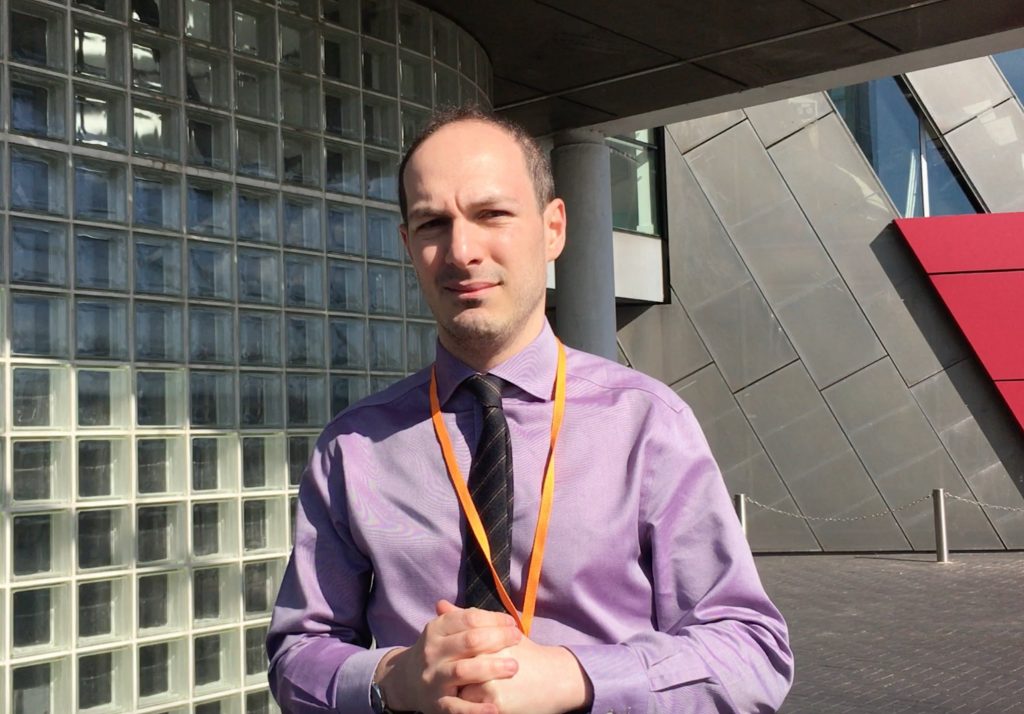
Alex Ganotis, the man behind the five-year environment plan announced at the GM Green Summit at the Lowry on Monday, says it simply: everyone can take simple, small steps that will make a difference to tackle climate change.
“People would be surprised if they gave it some thought.”
Whether it is recycling, turning off the lights or heating when not needed, or not using the car for short journeys, it all counts towards the end result.
And Greater Manchester Combined Authority is leading the way in the UK with unprecedented investment to become carbon neutral in less than 20 years.
As the Combined Authority lead member for the Green City Region portfolio, Mr Ganotis focuses on the protection of the environment, green spaces and air quality in Greater Manchester.
The plan, the result of working in close collaboration with scientists, outlines the necessary steps to achieve carbon neutrality in Greater Manchester – which means the city region would produce no more carbon dioxide that it can absorb – by 2038.
Andy Burnham announces five-year environment plan at GM Green Summit
“Unless we start making sustained reductions in carbon emissions over the next five years, we’re not going to achieve that target,” says Mr Ganotis.
“We want to create immediacy around this problem; things need to start changing from this point onward.”
But Mr Ganotis, who is also the leader of Stockport council, admits things are not going to be straightforward. Even if current environmental policies are scaled up, it will not be enough to meet what scientists say is necessary.
“The plan is really honest one,” he says. “If we just said to people that we had a plan that would tell you exactly how to get to carbon neutrality, it would be disingenuous.
“I think we’ve heard too much of that recently, especially in politics: ‘promises’, and ‘plans’, that people can’t exactly say how they will meet.”
He says the key will be innovation, which is why investment in research and technology must be prioritised.
“Look at the way things have changed,” he says with optimism. “Ten years ago, solar panels did not generate the level of electricity that they do today.
“Solar panels are now, never mind the green agenda, commercially, a much more investable proposition. And that’s because of technology.”
“The most important thing is to make significant cuts in the next five years,” says the #GMGreenCity lead Cllr Alex Ganotis at the @greatermcr green summit – so it’s a 5 not 20 year plan being launched today ✅??with a focus on #innovation #technology pic.twitter.com/3Zjgq04ecS
— Nick Speed (@speedupdating) March 25, 2019
But he warns that relying on technological advances alone is reckless: “Some people think ‘oh, it’s fine to carry on doing things the way that we are doing because technology will change the way we do things anyway’. No, that’s not enough.”
While national targets for carbon neutrality are still around 2050, Greater Manchester has brought the date forward because it is what scientists say is needed to tackle climate change.
“To an extent, that puts us at odds with central government,” says Mr Ganotis. “But we want to take our lead from the science, not from whoever happens to be in government, and in Westminster.
“I think there have been decisions taken over the past few years which are short sighted and will make things harder,” he says. “Solar is an example where subsidies have been cut over the past few years and I just think it’s a false economy.”
He adds that creating energy in sustainable ways is a means of creating economic growth, while creating cheaper electricity, ultimately, will save people money.
“You see so much of our social housing stock with solar panels on the roof, and people are already benefiting from that.”















Recent Comments